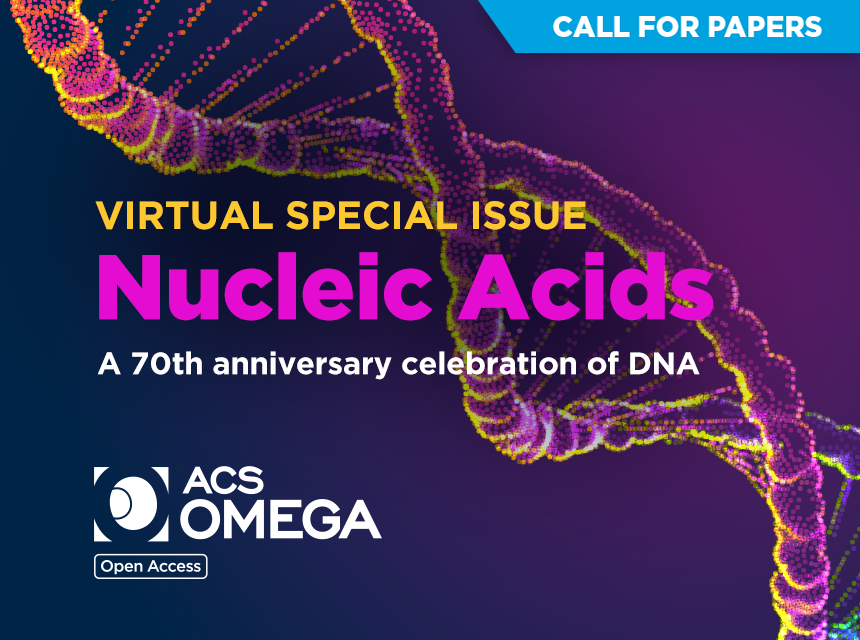The year 2023 marks two important milestones in the field of nucleic acids research. It marks both the 101st anniversary of the birth of Har Gobind Khorana and the 70th year of the publication of the double-helical structure of Deoxyribose Nucleic Acid by James Watson and Francis Crick.
The elucidation of the double-helical structure of DNA by James Watson and Francis Crick in 1953, along with the key contribution by Maurice Wilkins and Rosalind Franklin, is widely regarded as one of the most significant scientific breakthroughs of the 20th century. For this, Watson, Crick and Wilkins shared Nobel Prize in 1962. This discovery revolutionized the field of biology by revealing how genetic information is stored, replicated, and transmitted from generation to generation, and laying the foundation for the development of modern genetics and biotechnology.
Har Gobind Khorana shared the 1968 Nobel Prize for Physiology or Medicine with Marshall W. Nirenberg and Robert W. Holley for his research on the genetic code and its interpretation by cells. In subsequent years, he developed his understanding even further by deciphering the genetic code by synthesizing RNA fragments of a known sequence and determining the corresponding amino acid sequence of the protein they encoded. Khorana's pioneering work on the genetic code and its deciphering laid the foundation for the development of modern biotechnology and genetic engineering, and his contributions have had a profound impact on our understanding of the fundamental principles of life.
We invite Articles, Mini-Reviews, Reviews, or Perspectives on all topics relating to nucleic acids, including (but not limited to):
- Nucleic acid structure and dynamics
- DNA/RNA analogues - structure and synthesis
- Antisense/siRNA/miRNA/mRNA/gene-editing applications
- Synthetic process developments
- DNA/RNA self-assembly and nanomaterials
- DNA-small molecule/protein interactions and
- Gene editing and regulation
This Call for Papers aims to provide a platform for the scientific community to present their high-quality research in nucleic acids, in celebration of this milestone anniversary.
We welcome submissions for this Virtual Special Issue through 30 September 2023. All manuscripts will be peer-reviewed to ensure they fit the scope and conform to the high-quality scientific standards of ACS Omega prior to acceptance.
If your paper is accepted, your work will be highlighted as a significant contribution to this growing field of exploration. As ACS Omega is a fully open access journal, your paper will be available to anyone, at anytime, anywhere in the world.
Accepted publications will go online as soon as possible after acceptance and be published in the next available issue. In the Fall of 2023, the publications on this topic will be gathered into a Virtual Special Issue on a dedicated webpage and be promoted as a collection.
If you have any general questions regarding submission to this Virtual Special Issue, please contact Professor Krishna Ganesh.
Article Processing Charges apply for publication in this fully open access journal. Please see our website for more information on Open Access Pricing, our ACS Country Discount & Waiver Policy, and ACS Read + Publish agreements.
How to submit
To submit for this Virtual Special Issue:
- Log in to the ACS Paragon Plus submission site
- Choose ACS Omega as your journal
- Select your manuscript type
- Under the ‘Special Issue Selection’, choose ‘Nucleic Acids'.
The deadline for submissions is 30 September 2023.
About the Virtual Special Issue Editors
Dr. Muthiah (Mano) Manoharan is a world-leading chemist in the areas of oligonucleotide chemical modifications, conjugation chemistry, and delivery platforms (lipid nanoparticles, polymer conjugates, and complex-forming strategies). Dr. Manoharan and his research group demonstrated for the first time the human therapeutic applications of GalNAc-conjugated oligonucleotides, a platform that has revolutionized nucleic acid-based therapeutics.
He received the M. L. Wolfrom Award from the American Chemical Society Carbohydrate Chemistry Division in 2007 for his contributions to this field. Dr. Manoharan earned his Ph.D. in chemistry at the University of North Carolina-Chapel Hill with Professor Ernest L. Eliel and did post-doctoral research at Yale University and the University of Maryland with Professor John A. Gerlt. He currently serves as a Senior Vice President and a Distinguished Research Scientist at Alnylam Pharmaceuticals, Cambridge, Massachusetts, USA.
Prof. Krishna Ganesh is a world-leading researcher in the chemistry and biology of nucleic acids with a special focus on the applications of DNA analogues, structural biology of collagen peptides, and DNA nanotechnology. He is recognized for his contributions to the design of Peptide Nucleic Acid (PNA) analogues for effective cell permeation. His scientific contribution towards the understanding of the chemical principles of DNA molecular recognition and DNA interaction with drugs and proteins was recognized with the CSIR Shanti Swarup Bhatnagar Prize in chemical sciences (1998). He is a Fellow of the Indian National Science Academy (2000) and The World Academy of Sciences (TWAS, 2006).
He was most recently awarded the Padma Shri (2023) by the Government of India. He is the Founding Director of two of the 7 IISERs that are Institutes of national importance of India - IISER Pune (2006-2015) and IISER Tirupati (2017-2023). He is currently very excited to be moving back to active research at Jawaharlal Nehru Centre for Advanced Scientific Research (JNCASR) in Bangalore as National Science Chair of Science and Engineering Research Board (SERB-DST), New Delhi.
© 2025 American Chemical Society, 1155 16th St NW, Washington, DC 20036, USA. View our Privacy Policy



